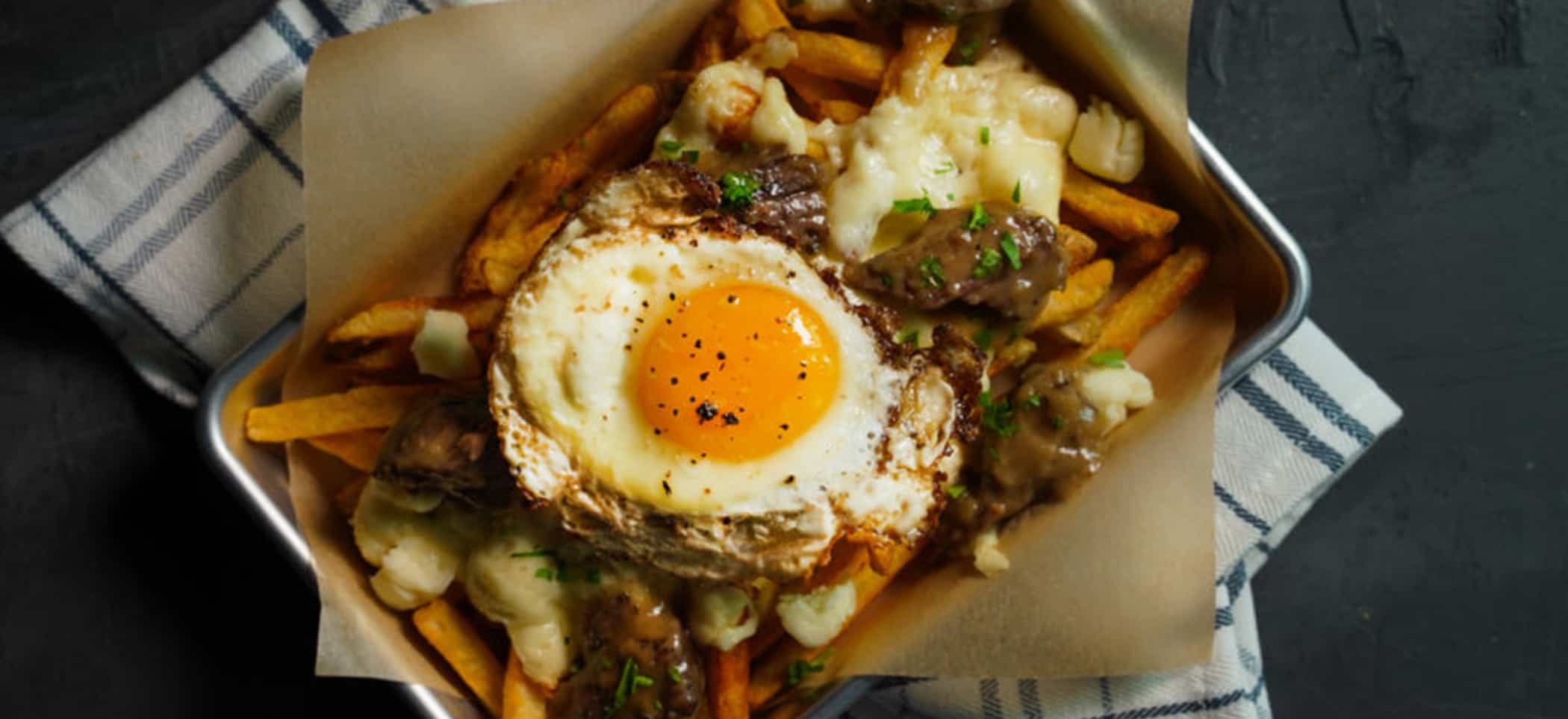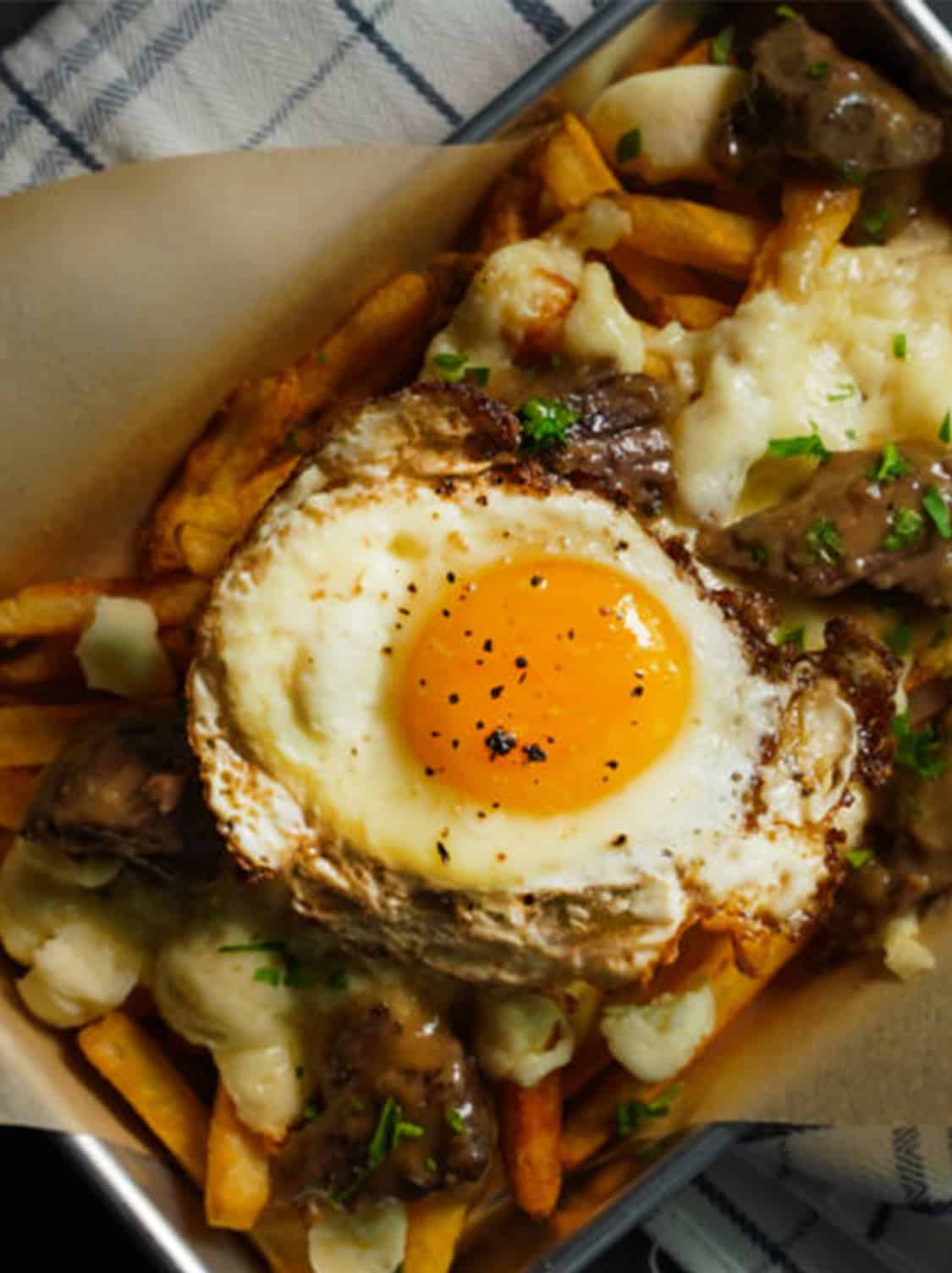

Directions
PREHEAT oven to 300° F. Place 3 Tbsp. butter and flour in a small bowl and MIX together until fully combined. POUR oil into a large Dutch oven and place over medium-high heat.
Generously SEASON short ribs with salt and pepper and SEAR on each side. REMOVE short ribs from pot and set aside.
ADD onions, carrots, garlic and celery and SAUTÉ for about 5 minutes. SEASON with salt and pepper.
DEGLAZE pot with red wine, making sure to scrape any browned bits that may have stuck to the bottom. BOIL until liquid has been reduced by half. ADD short ribs back to the pot and cover with broth.
BRING to a boil, COVER and place into the oven for 2 1/2 to 3 hours or until ribs are fork tender.
REMOVE short ribs from braising liquid and set aside. SKIM excess fat from top of braising liquid. Using an immersion blender, BLEND braising liquid until smooth. WHISK in butter-flour mixture and COOK over medium heat until the sauce thickens.
FRY eggs in a nonstick skillet until the yolk is just set, SEASONING with salt and pepper.
To ASSEMBLE poutine, start by placing a mound of fries in a bowl. TOP with half a cup of cheese curds, shredded short ribs and gravy. Gently place a fried egg on top and SERVE.
Ingredients
- 4 large EGGS
- 6 Tbsp. butter (divided)
- 1 Tbsp. flour
- 2 Tbsp. oil
- 8 bone in (4 lb) short ribs
- 2 onions, diced
- 3 carrots, peeled and diced
- 3 ribs celery
- 6 cloves garlic
- 1 bottle red wine
- 4 cups beef stock
- salt and pepper (to taste)
- 8 cups frozen French fries (cooked according to package instructions) 1cup=85g
- 2 cups Wisconsin cheese curds
Tips
To melt the cheese further, place the poutine, in an oven safe bowl, under the boiler before adding the fried egg.
If you can’t find real cheese curds, experiment with your favorite melting cheese, like mozzarella or Oaxaca.
This recipe is an excellent source of protein, vitamin A, calcium, iron, folate, choline and potassium.
Per serving: 1/4 of recipe
- Calories 2722
- Total fat 213 g
- Saturated fat 93 g
- Polyunsaturated fat 12 g
- Monounsaturated fat 8 g
- Cholesterol 613 mg
- Sodium 1387 mg
- Carbohydrates 67 g
- Fiber 8 g
- Sugar 18 g
- Protein 95 g
- Vitamin A 576 mcg
- Vitamin D 1 mcg
- Folate 117 mcg
- Choline 182 mg
- Calcium 593 mg
- Iron 12 mg
- Potassium 2560 mg
To ensure food safety, eggs should be cooked until both the yolk and the white are firm. Consuming raw or undercooked eggs may increase your risk of foodborne illness, especially for those with certain medical conditions. For recipes that call for eggs that are raw or undercooked when the dish is served, use either pasteurized shell eggs that have been treated to destroy Salmonella, or use pasteurized egg products.
